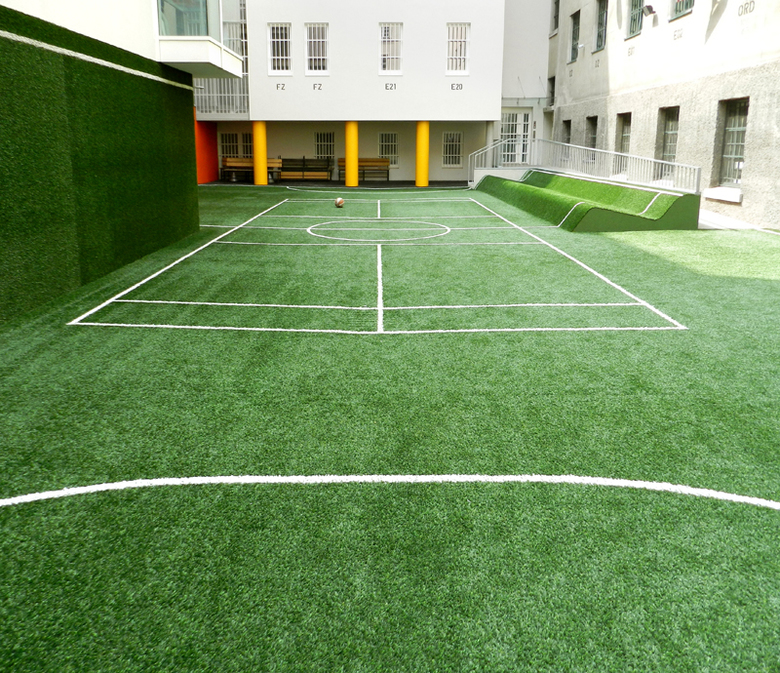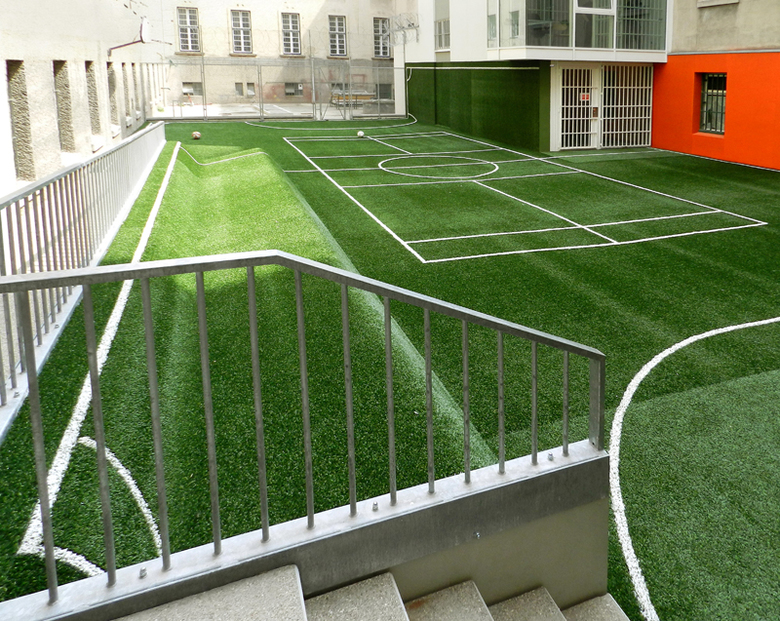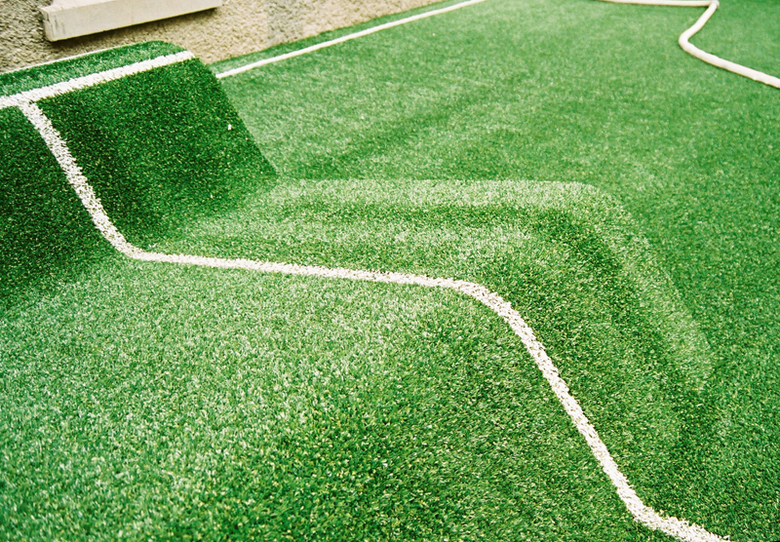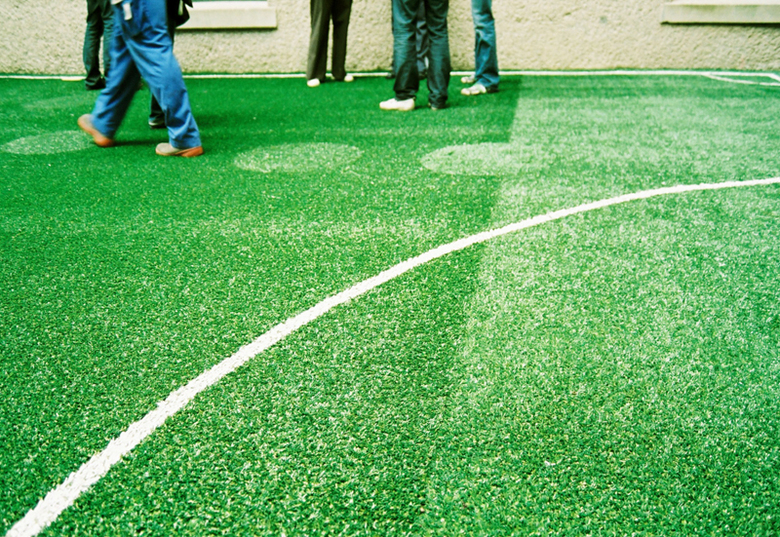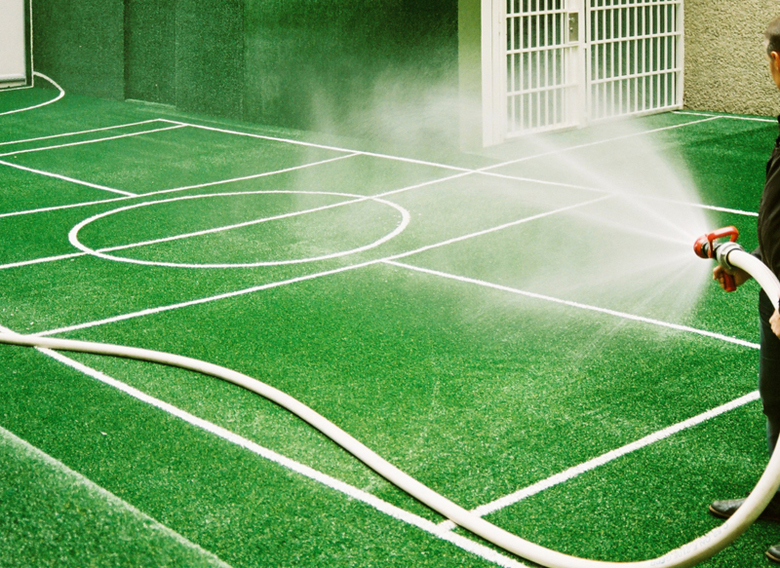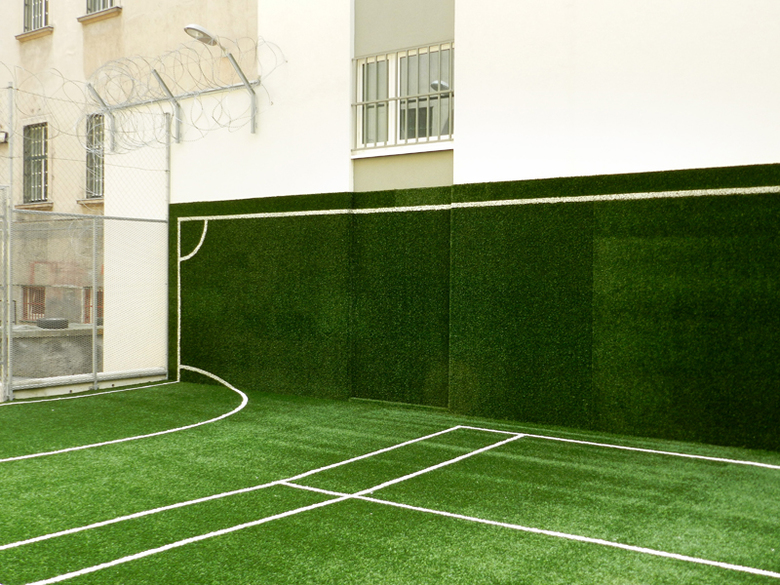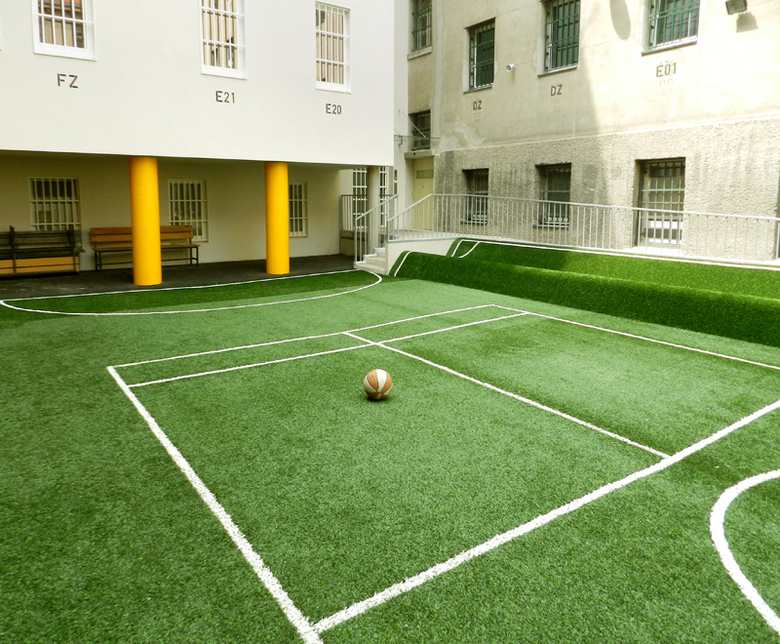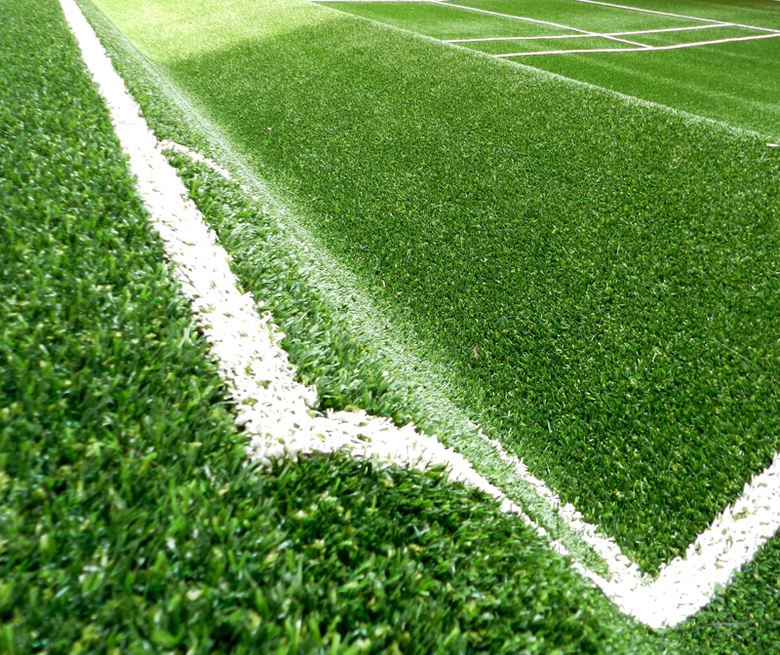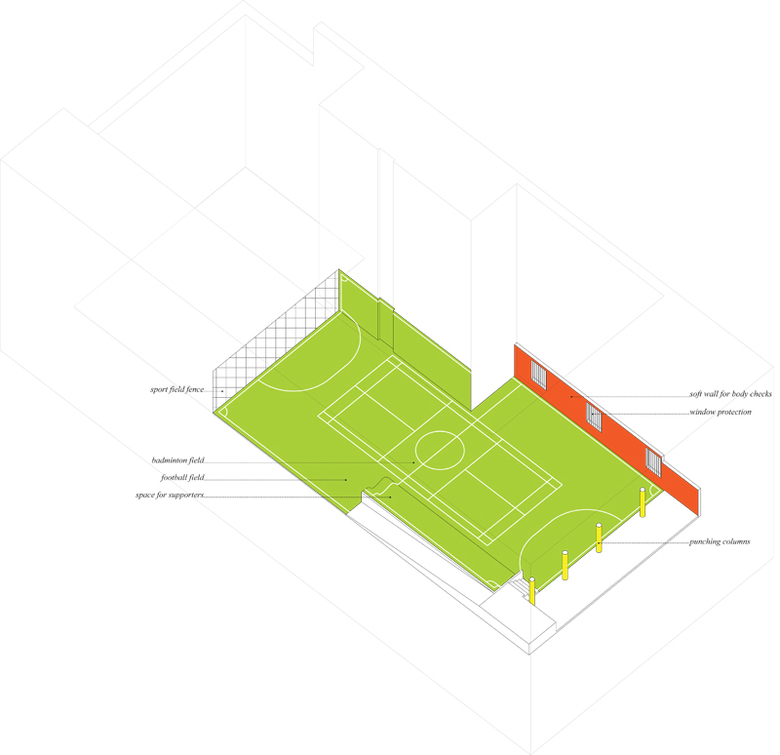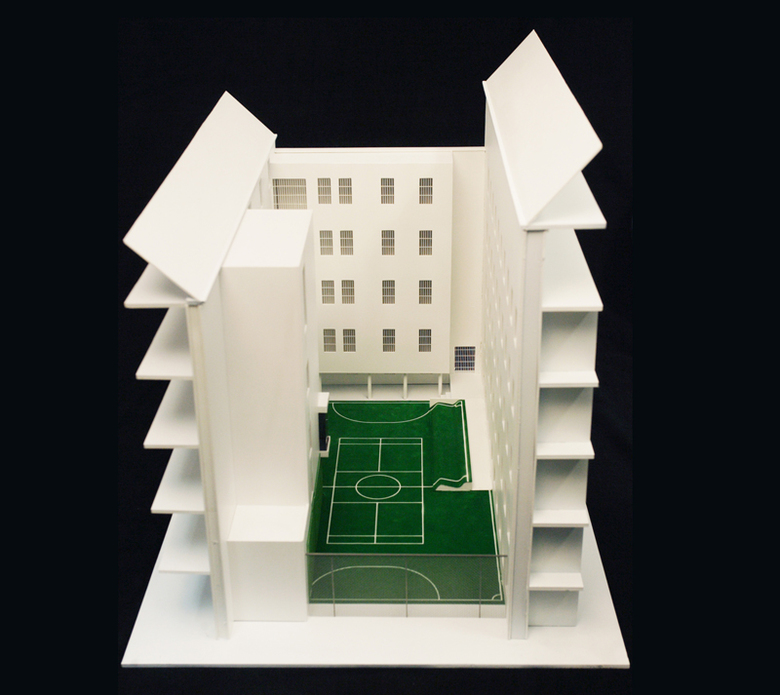Out in Prison
Back to Projects list- Location
- Krems, Austria
- Year
- 2013
- Conept
- Gabu Heindl und Lisi Zeininger
- Architecture
- GABU Heindl Architekture
- Firm
- Strabag
- Client
- BIG − Bundesimmobiliengesellschaft & Justizanstalt Krems
The spatial intervention "Out in Prison" has at its core the central thesis that there is a right to architecture for everybody.
Problematizing the production of space, the question is at what point such a process begins. In this case it begins with the vexed issue of why there are prisons in the first place, what type of construction public money is being spent on, and if architects should enter into working "for" prisons. Also, questions come into play as to who prepares the brief for such a project and how prisoners´ rights to space are regarded. Given that in this case there is something not entirely "justified" about the spatial situation to work on, a problematic spectrum for architectural action opens up ranging from cynicism (manifold in projects aiming at beautification) to radical change. With a "wrinkled" football field in the tiny prison courtyard I tried to expose rather than to cover up an existing spatial articulation of injustice.
The project is located in an existing prison from 1935, which is listed as a historical building, yet is still in use for imprisonment up to 18 months. The brief for the "percentage-for-art" project accompanying the general refurbishment of the instution, was written by the art educators' collective trafo.K. During the first visit of the prison, it became obvious that there was hardly any outdoor space, let alone qualitative ones. My question why there was no football field was answered by pointing to the lack of the inmates' interest in playing football or other sports. More hesitantly, it was told, that they were not allowed to because of the lack in space. To create this missing football field became my goal – even though it seemed that there was in fact no place for it.
"Out in prison" takes its place in the only outdoor space for the male inmates, a courtyard, which is smaller in size than a "Bambini" soccer field, and, furthermore, it has rough edges and corners. All the same, the goal was to turn this yard into a sport's field – with some curtailments, but also some new perspectives and possibilities. This was done by not denying but integrating the existing problematic spatial conditions into the aesthetic concept, so that the impossibilities conspicuously display the injustice of the space as much as they create qualities not foreseen by the existing "distribution of the sensible" (Jacques Rancière).
Another aspect was also to mediate between those, who found making such an effort for inmates unnecessary and those, who believed in the project and supported its realization. "Out in prison" is the only project of ours, which is photographically documented without people in the pictures; this is done purposefully in this case, since in a prison there is a right to anonymity for everybody.
